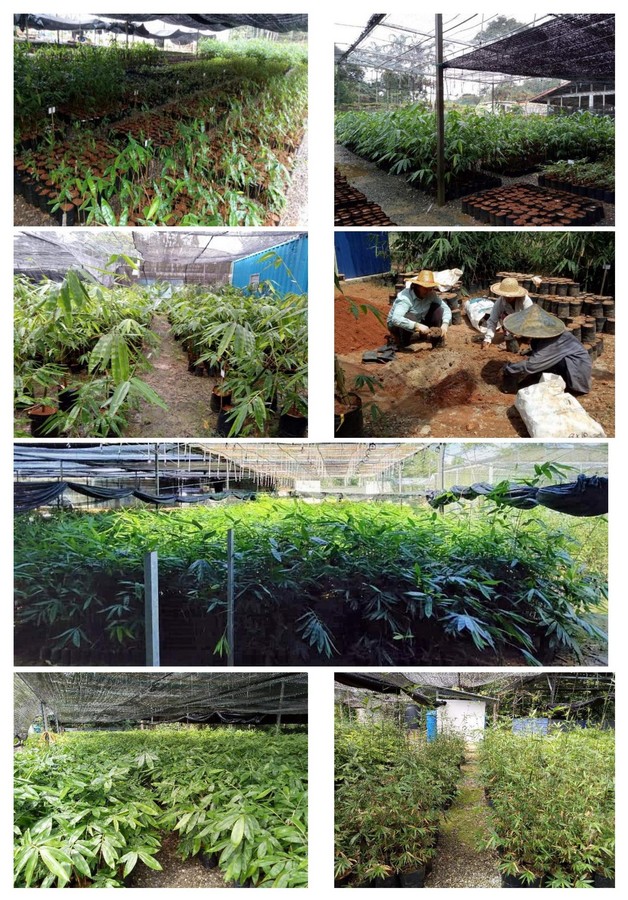Known for its natural wealth, Sarawak is harnessing its extensive bamboo resources to boost economic growth and environmental stewardship.
Home to over 100 species of bamboo, the state is strategically positioned to enter the expanding global bamboo market.
Renowned for its rapid growth and adaptability, bamboo is emerging as a cornerstone for industries such as construction and manufacturing.
By 2030, the state plans to establish a dynamic bamboo industry through policy support, collaborative research, and strategic initiatives, aligning economic progress with sustainability goals.
Strategic Initiatives and Collaborations
Since 2016, the Sarawak Timber Industry Development Corporation (STIDC) has been at the forefront of advancing the bamboo sector in the state.
Among the ten species of bamboo being cultivated are four different Sarawak local species of bamboo, namely Bambusa vulgaris (Buluh minyak), Gigantochloa levis (Buluh beting), Gigantochloa hasskarliana (Buluh beti), and Dendrocalamus asper (Buluh betong).
The initiative aims to harness bamboo’s versatility as a raw material for sectors such as construction, manufacturing, food production, and environmental conservation.
A key partnership between STIDC and University Malaysia Sarawak (UNIMAS) focuses on advancing bamboo research.
Their collaboration includes monitoring the growth of various bamboo species at the Sabal Bamboo Pilot Project in Simunjan, yielding essential data to shape industry strategies.
Looking to the future, Sarawak envisions a robust bamboo industry by 2030, producing a variety of goods, including food products like bamboo shoots, charcoal, pharmaceuticals, pulp and paper, cosmetics, textiles, handicrafts, and innovative engineered bamboo products such as biomass and biochar.
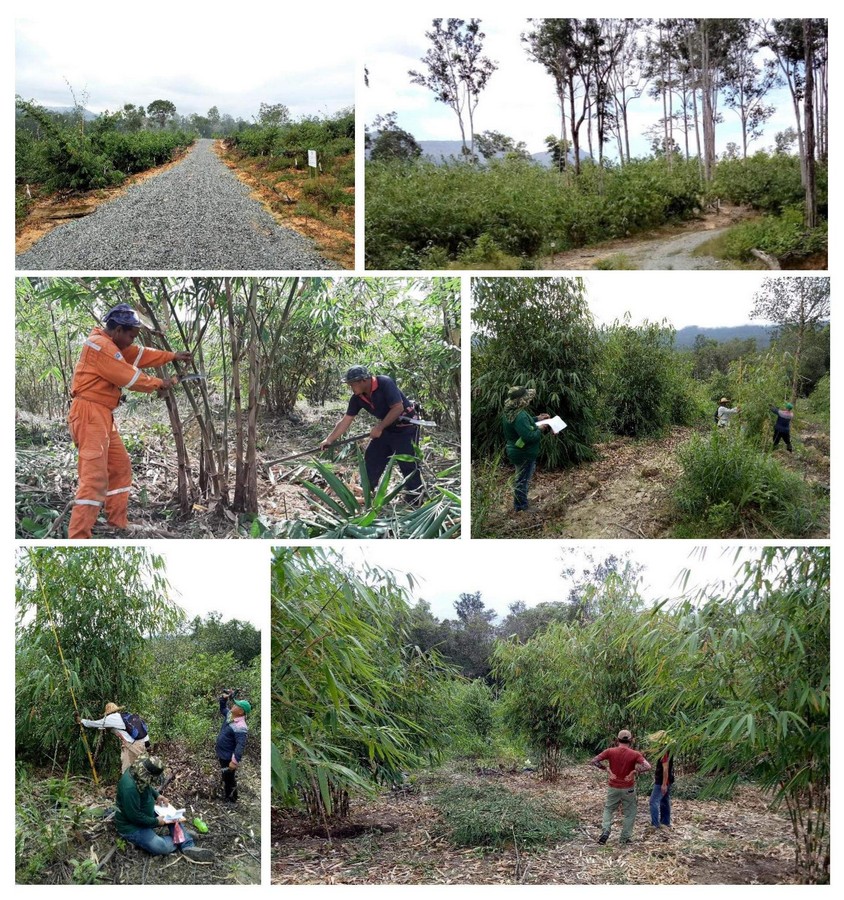
Economic Potential and Export Targets
The global demand for bamboo products is significant, with the export value of bamboo-based goods reaching around USD 68 billion in 2022, growing at an annual rate of approximately 4%.
According to the Bamboo Global Market Report 2024, the bamboo industry’s market size is expected to increase from USD 70.59 billion in 2023 to USD 75.12 billion in 2024.
In Malaysia, bamboo exports generated RM8.43 million in revenue that year, with Sarawak accounting for RM1.2 million of the total.
Reflecting its strategic vision for the bamboo industry, the Sarawak government plans to increase yearly export earnings to RM10 million.
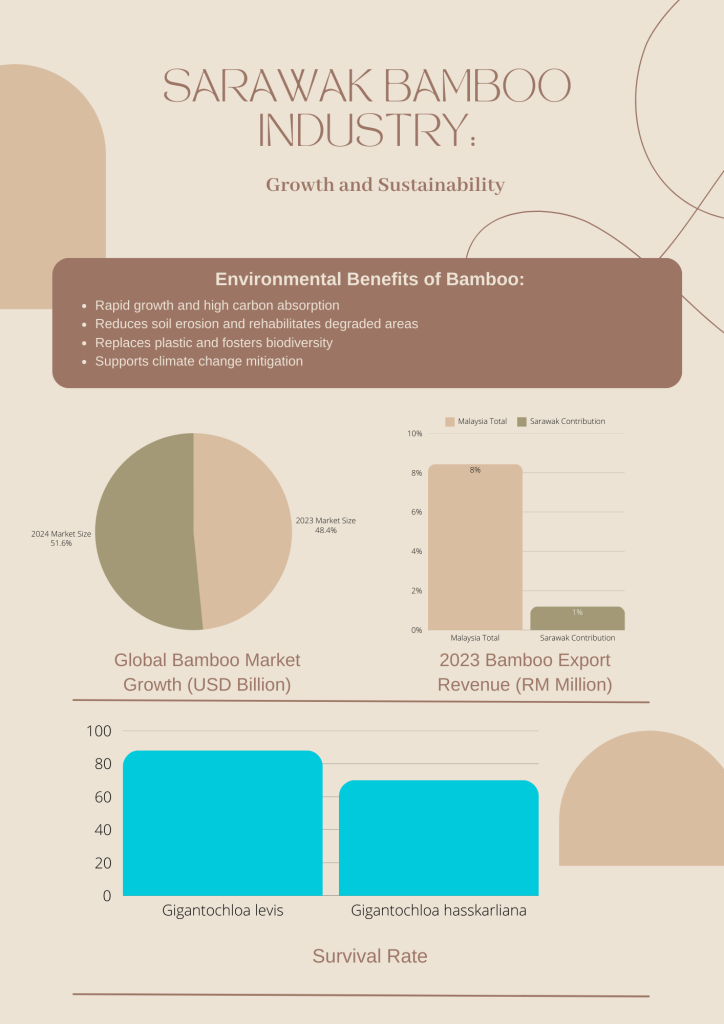
Research and Development Efforts
Research is a key driver in the growth of the bamboo sector.
At the Sabal Bamboo Pilot Project site, studies have assessed the survivorship and growth traits of different bamboo species. For example, Gigantochloa levis achieved an 88% survival rate, while Gigantochloa hasskarliana recorded 70%.
These insights are crucial for determining the best species for large-scale cultivation.
Additional research at the site focused on the early growth of ten bamboo taxa, highlighting their suitability for various purposes.
These findings are key to shaping cultivation strategies and industrial development.
In January 2025, Prof. Ir. Dr. Siti Noor Linda Taib, Deputy Vice-Chancellor (Research and Innovation), headed a UNIMAS delegation to visit STIDC’s Trial Plot in Sabal, Simunjan.
The purpose of the visit is to enable researchers to derive ideas and inspiration for contributing to the development of Sarawak’s bamboo industry.
The collaboration with STIDC will emphasize two critical research areas: upstream and downstream activities, essential for fostering sustainable and impactful industry growth.
Through this partnership, stakeholders are urged to support STIDC in leveraging technological innovations to strengthen the bamboo sector and its impact on the timber industry.
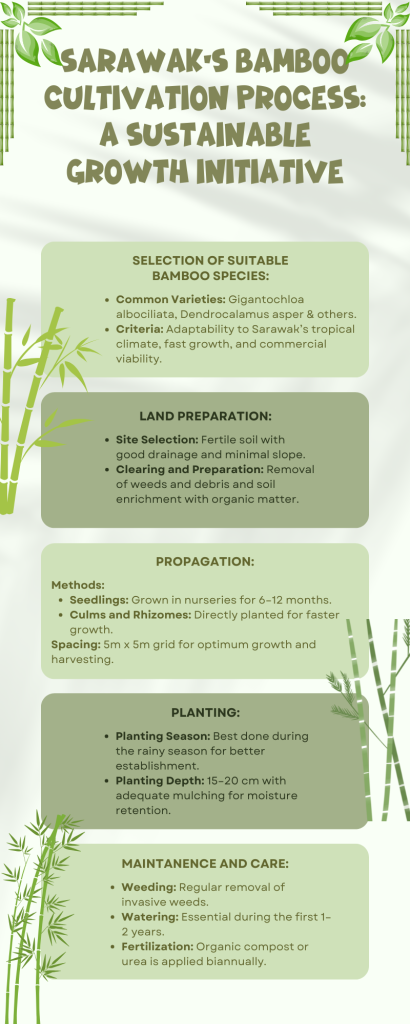
Sustainable Development and Environmental Benefits
Beyond its economic impact, bamboo offers critical environmental advantages.
With its fast growth and exceptional carbon absorption, bamboo serves as a powerful ally in addressing climate change.
Furthermore, bamboo cultivation helps reduce soil erosion, replace plastic, rehabilitates degraded areas for wildlife habitats, and fosters biodiversity, aligning with Sarawak’s sustainability goals.
Challenges and Future Outlook
Although the bamboo industry in Sarawak shows great potential, it is hindered by challenges such as limited technical know-how in cultivation and processing.
Overcoming these barriers will require ongoing research, investments in training, and the establishment of supportive infrastructure.
The partnership between STIDC and UNIMAS is a crucial step in building the expertise and resources needed to advance the industry.
All things considered, Sarawak’s bamboo industry holds significant growth potential underpinned by purposeful initiatives, research partnerships, and a vision for sustainable development.
By optimizing its bamboo resources and staying in tune with global market trends, Sarawak aims to advance both economically and environmentally.
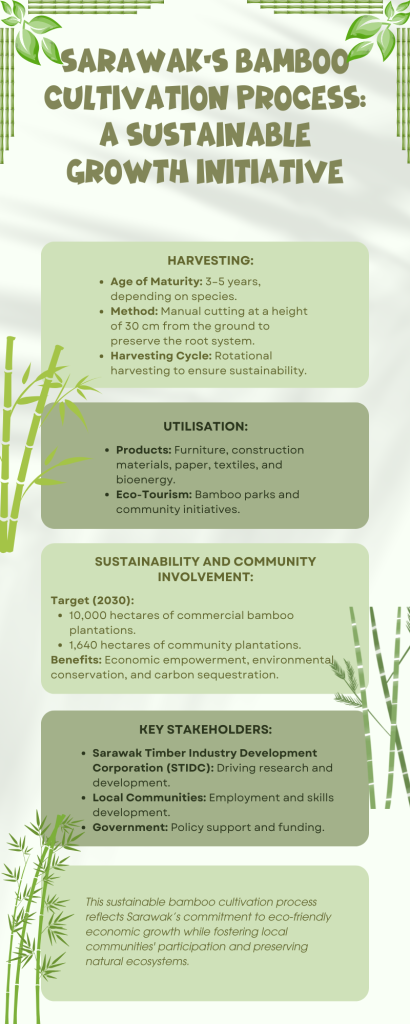
References:
- https://www.sarawaktimber.gov.my/web/subpage/webpage_view/195?
- https://www.thestar.com.my/metro/metro-news/2025/02/11/unimas-helping-to-develop-sarawaks-bamboo-industry?
- https://ir.unimas.my/id/eprint/45505/3/Towards%20Bamboo%20Industry.pdf
- https://dayakdaily.com/sarawak-sets-rm10-mln-target-in-annual-bamboo-export-earnings-from-2022s-rm1-2-mln/?
- https://www.researchgate.net/publication/366643504_Towards_Bamboo_Industry_Development_in_Sarawak_Evaluation_on_Survivorship_and_Field_Growth_Attributes_of_Four_Selected_Bamboo_Species
- https://www.researchgate.net/publication/361227382_Early_Field_Growth_Performance_of_Ten_Selected_Bamboo_Taxa_The_Case_Study_of_Sabal_Bamboo_Pilot_Project_in_Sarawak_Malaysia
- https://openknowledge.fao.org/server/api/core/bitstreams/8585ce0b-8b69-4174-af64-da4383c0227a/content?
- https://www.bernama.com/en/news.php?id=2365392
- https://premierdept.sarawak.gov.my/web/subpage/news_view/11997/UKAS
- https://www.mida.gov.my/mida-news/sarawak-govt-empowers-downstream-industries-to-produce-high-value-wood-products-says-deputy-premier/?utm_source=chatgpt.com
- https://www.sarawaktribune.com/pusaka-aims-to-unlock-potential-of-bamboo-industry/


